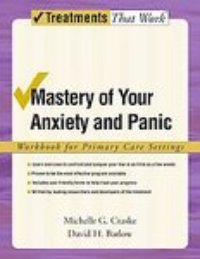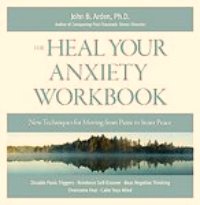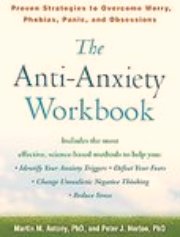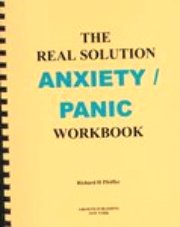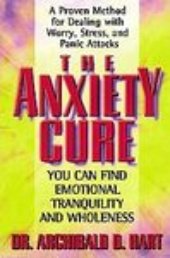|
Anxiety - Worry - Panic
Blame the economy! Blame society. Blame technology. Blame our culture. Why is life so stressful? How can we manage all this pressure? And what about our closest relationships; aren't they suffering? Pressure to perform at work, at school and at home is stressing us out. And our kids! Are they going to make it? And what about the gangs, the violence on TV and all the porn on the internet? What if I fail, what if I lose my job, my husband/wife or even my mind? Life can be scary and mortifying! If you let yourself think "this" way then you are going to suffer from anxiety, worry and maybe even panic. It is not what is happening out there that makes us feel anxious, but what we are telling ourselves about everything out there. One of the most important keys to living a happier, more effective and anxiety-free life is the fact that you are responsible for how you feel and how you think. People who suffer from general anxiety, panic attacks and phobias are especially prone to engage in negative self-talk.
Anxiety stems from the fear of the future. To start to manage your anxiety, you will have to start slowing down your thinking. Start to pay close attention to what you are saying to yourself. A key "two word" saying will tip you off that worrying and anxiety is coming your way. Do you find yourself saying "what if"? "What if I can't handle it?" "What if my family, friends or lover finds out?" "What if I panic?" What if I am embarrassed?" The first step is to notice your "what if" statements. The second step is to counter and replace your negative statements with positive statements that reinforce your ability to cope with the situation. Statements like: "I can handle this", "I don't need to scare myself, I'm going to manage this just fine", or "I can breathe, let go, and relax". When your "positive self-statements" are practiced and learned, your brain chemistry actually changes and the brain's neurological pathway is changed from one that causes anxiety to one that causes calm and peace.
Self-talk
Often it is only when you slow down and relax that you can identify your own self-talk. It is so automatic and subtle that you don't usually notice how it affects your mood and feelings. Self-talk does not usually come across as a long drawn out sentence of doubt and fear but is only a few words that represents a whole series of thoughts, experiences and memories. The statement, "Oh no!", packs a lot of feelings and emotions that tells you to watch out. As you identify and unravel the deeper meaning of your favorite negative phrase, focus on the memories that are dominating your thoughts. Anxious self-talk is typically irrational but sounds like the truth because you have repeated it so many times in your mind. Your "what if" thinking leads you to expect the worst possible outcome, but the worst outcome very rarely occurs. Your negative associations take place so quickly, that they go unchallenged and unquestioned. It is hard to evaluate the veracity of your beliefs when they go by so fast, you are not even aware of it. You just accept it as the truth. Negative self-talk reinforces avoidance. You avoid the things you fear, and that reinforces the misbelief that it is dangerous to participate in that activity. The more you repeat your anxious self-talk the more you believe that your fear is true, so you continue to avoid those situations. The negative cycle keeps perpetuating itself.
|
Books
